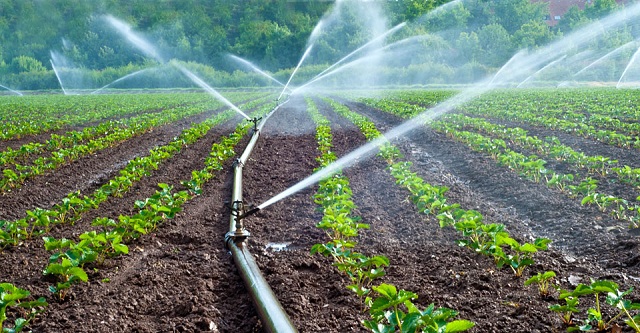
The Sunday News

Ngonidzashe Chiutsi, Farming Correspondent
ABOUT 600 families are involved in enterprising farming businesses at irrigation schemes in Matobo and Gwanda districts after a local non-governmental organisation, Dabane Water Works, installed sand abstraction pumps which they use to water various crops to sustain their livelihoods.
Sand water abstraction is a method of drawing water from sandy rivers for domestic, livestock and irrigating small gardens.
The pump, known as Rowa, is connected to a well point in the river bed and pumps water from there.
One of the beneficiaries Mrs Janet Ncube who is the chairperson of Madleloaluhlaza Irrigation Scheme in Maphisa, said hunger was now a thing of the past after Dabane Water Works installed a pump along the Shashani River.
“We are an association of 18 members that comprises 15 women and three men. We started this garden project in 2008 after Dabane installed a pump here. We grow a variety of crops such as tomatoes, onions, beetroot, cabbages that we sell and get money to sustain our families,” she said.
Madleloaluhlaza Irrigation Scheme treasurer Mrs Qhubekani Mtshele said they had managed to increase food production to feed their families.
“The irrigation scheme has transformed our lives for the better. We can get about $20 per week which we can use to pay school fees for our children,” said Mrs Mtshele.
Dabane Water Works project team leader Mr Sheppard Moyo said his organisation has installed several well-points and hand pumps to serve the community in the drought prone Matabeleland South.
“In the whole of Matobo district, we have got 34 pumps and in Gwanda we have got 21 gardens. We also have 18 in Bulilima, eight in Mangwe and some in Lupane,” said Mr Moyo.
“We have also trained our partners who work at World Vision, Caritas, Orap, Practical Action and others and we have since established more gardens.”
Mr Moyo said they were targeting the area because it is the driest part of the country. He said the irrigation projects had managed to equip people with the power to produce for themselves rather than waiting for food handouts.
“There is a huge potential in these irrigation projects and about 600 have benefited from them,” he said.
He said there has been an overwhelming response from the communities that have embraced the programme.
Dabane has installed the sand-abstraction systems at some 100 sites in Zimbabwe over a period of 14 years.
The original installations put in place in 1992 are still in operation and independently managed by rural community groups.
Mr Moyo said they were in the process of installing solar panels to power the pumps.



